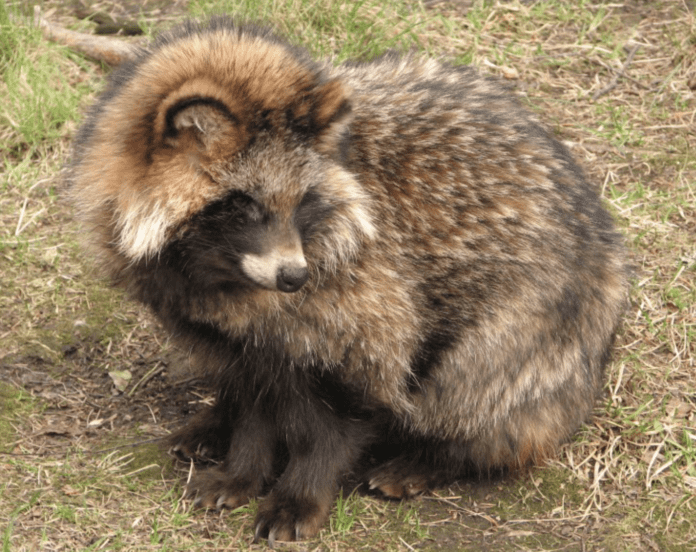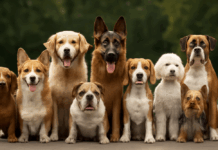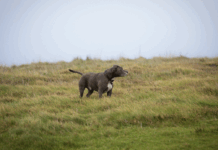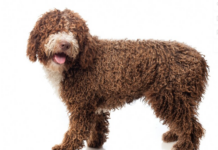Last Updated on April 2, 2024 by Dogs Vets
Raccoon Dogs: An Intriguing and Enigmatic Species
Raccoon dogs, also known as tanukis, are captivating creatures with a unique blend of features and behaviors. Native to Asia, particularly in Japan, these animals have been the center of numerous myths, folklore, and debates.
This comprehensive guide will explore the world of raccoon dogs, diving into topics such as their habitat, behavior, potential as pets, and more.
Raccoon Dogs vs. Raccoons: Understanding the Differences
While raccoon dogs may share a striking resemblance with raccoons, they are, in fact, two distinct species.
Raccoon dogs belong to the canid family, which includes wolves, foxes, and domestic dogs. In contrast, raccoons are part of the Procyonidae family. Some key differences between raccoon dogs and raccoons include:
Physical Appearance
- Size: Raccoon dogs are generally larger than raccoons, with a body length of 20-27 inches and weighing between 9-15 pounds.
- Tail: Raccoon dogs have a bushy tail, while raccoons have a ringed tail.
- Color: Both species share similar coloration, featuring a grayish-brown coat with darker markings around the eyes.
Behavior
- Diet: Raccoon dogs are omnivorous, consuming various plants, small mammals, insects, and amphibians. Raccoons, on the other hand, have a more diverse diet, including fish and shellfish.
- Hibernation: Unlike raccoons, raccoon dogs hibernate during the winter months.
- Social Behavior: Raccoon dogs tend to be more social and monogamous, while raccoons are more solitary creatures.
The Natural Habitat of Raccoon Dogs
Asian Raccoon Dogs
Raccoon dogs are native to East Asia, with a substantial population in Japan, China, Korea, and eastern Siberia. They thrive in various habitats, such as:
- Forests
- Grasslands
- Swamps
- Farmlands
Raccoon Dogs in Europe
Raccoon dogs were introduced to Europe in the early 20th century for fur farming purposes. Over time, they have established themselves in the wild, expanding their range across countries like Russia, Germany, and Scandinavia.
Raccoon Dogs as Pets: Pros and Cons
While raccoon dogs may appear to be exotic and fascinating pets, they are not domesticated animals. Some key considerations before acquiring a raccoon dog as a pet include:
Legal Restrictions
In many countries, owning a raccoon dog as a pet is either illegal or requires a special permit. It is crucial to check local regulations before considering raccoon dogs as pets.
Behavior and Temperament
Raccoon dogs are wild animals with natural instincts that may not be suitable for a domestic setting. They can be unpredictable, exhibit destructive behaviors, and may pose a risk to other pets or humans.
Environmental Concerns
As non-native species, raccoon dogs can have negative impacts on local ecosystems, displacing native fauna and causing imbalances.
Raccoon Dogs for Sale: Ethical Considerations
The exotic pet trade has been linked to numerous ethical concerns, including the potential for animal cruelty, illegal trade, and environmental damage.
When contemplating raccoon dogs for sale, it is essential to consider the source of the animals, the conditions in which they were bred and raised, and the potential consequences of introducing a non-native species into the local ecosystem.
Alternatives to Owning Raccoon Dogs
For those who admire raccoon dogs but acknowledge the ethical and practical concerns, there are alternative ways to appreciate these creatures:
- Visiting Wildlife Sanctuaries: Many wildlife sanctuaries and zoos house raccoon dogs, providing an opportunity to observe and learn about them in a responsible setting.
- Supporting Conservation Efforts: Donating to organizations that focus on raccoon dog conservation and habitat protection can help ensure the continued survival of these animals in the wild.
- Educational Resources: There is a wealth of information available online and in books about raccoon dogs, their habits, and their role in mythology and folklore.
Are Raccoon Dogs Dangerous?
Raccoon dogs, like any wild animal, can be unpredictable and potentially dangerous if they feel threatened. While they are not typically aggressive towards humans, they may exhibit defensive behaviors when cornered or protecting their young.
Additionally, raccoon dogs can carry various diseases, such as rabies and parasites, posing a risk to humans and other animals.
Raccoons and Dogs: Potential Risks
Pet owners should be aware of the potential risks associated with raccoons and dogs, as they may come into contact with each other in certain environments. Some of these risks include:
- Aggressive Encounters: Raccoons can be protective of their territory and may attack dogs if they feel threatened.
- Disease Transmission: Raccoons can carry diseases that are transmissible to dogs, such as canine distemper, leptospirosis, and rabies.
- Injury: Even a brief encounter between a raccoon and a dog can result in injuries to either animal.
Raccoon Dogs: A Fascinating Species Worthy of Respect
Raccoon dogs are captivating creatures that have captured the imagination of people for centuries. As we continue to learn more about their unique biology, behaviors, and cultural significance, it is crucial to respect these animals as wild creatures deserving of protection and conservation efforts.
Frequently Asked Questions
-
Do raccoon dogs make good pets?
While raccoon dogs may appear to be fascinating pets, they are not domesticated animals and can pose various challenges, including unpredictable behavior, legal restrictions, and potential risks to local ecosystems.
-
Where do raccoon dogs live?
Raccoon dogs are native to East Asia, with populations in Japan, China, Korea, and eastern Siberia. They have also been introduced to Europe, where they have established themselves in the wild.
-
Are raccoon dogs related to raccoons?
Despite their similar appearance, raccoon dogs are not closely related to raccoons. Raccoon dogs belong to the canid family, while raccoons are part of the Procyonidae family.
-
Do raccoon dogs hibernate?
Yes, raccoon dogs hibernate during the winter months, which is a unique characteristic among canids.
-
What do raccoon dogs eat?
Raccoon dogs are omnivorous, consuming a varied diet of plants, small mammals, insects, and amphibians.
-
Are raccoon dogs dangerous to humans?
While raccoon dogs are not typically aggressive towards humans, they can be unpredictable and potentially dangerous if they feel threatened. They can also carry diseases that pose a risk to humans and other animals.
-
What is the difference between raccoon dogs and raccoons?
Raccoon dogs and raccoons differ in their taxonomy, physical appearance, and behavior. Raccoon dogs belong to the canid family, while raccoons are part of the Procyonidae family.
Physically, raccoon dogs are larger than raccoons and have a bushy tail, compared to the ringed tail of raccoons. In terms of behavior, raccoon dogs are more social, monogamous, and hibernate during winter months, whereas raccoons are more solitary and do not hibernate.
Fact Check
We hope you enjoyed reading this article. What are your thoughts on the topic?
“At [Dogsvets.com], our goal is to bring you the most accurate and up-to-date information on all things pet-related.
If you have any additional insights or would like to advertise with us, don’t hesitate to get in touch.
If you notice any errors or discrepancies in our content, please let us know so we can correct them.
We welcome your feedback and encourage you to share this article with others.”























